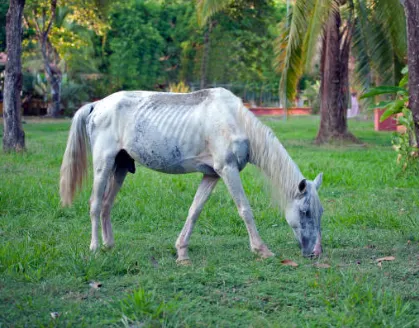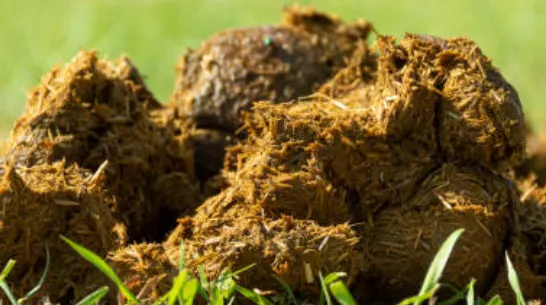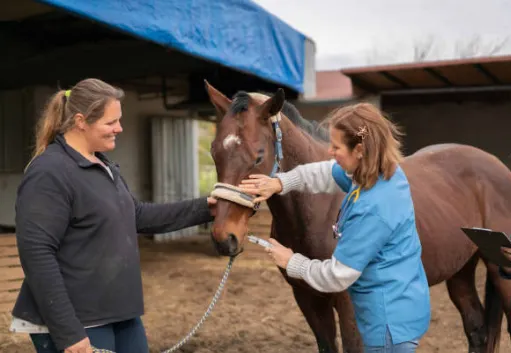The Importance of Worming Horses: Ensuring the Health of Your Equine Companion
Worming is an essential part of horse care that many owners may not give much thought to until an issue arises. However, regular deworming is crucial for maintaining your horse’s health, preventing diseases, and ensuring their comfort. Worm infestations can lead to a range of health problems, and without a proactive approach, these parasites can cause significant harm. In Australia, where diverse climates and environments foster a wide variety of worms, it is especially important to take the necessary precautions.
In this blog post, we’ll delve into the importance of worming horses, the types of wormers available in Australia, compare them to veterinary stomach drenches, and discuss the specific needs of foals and broodmares. We’ll also take a look at the various types of worms that can affect horses, the dangers they pose, and how to manage worming effectively.
Why is Worming Important for Horses?
Worms, or internal parasites, are a major threat to a horse’s digestive health. These parasites can live and reproduce in the gastrointestinal system, drawing vital nutrients from the horse’s body. Over time, a horse with a heavy worm burden will begin to suffer from malnutrition, weight loss, and general ill-health. Additionally, some types of worms can migrate to other parts of the body, such as the lungs or blood vessels, causing severe and potentially life-threatening damage.
Even if a horse doesn’t display immediate signs of worm infestation, they can still be carrying a parasite load that could cause damage over time. Regular worming helps to reduce the risk of parasite-related diseases and ensures the long-term health and well-being of the animal.

The Risks of Worm Infestations
Worms can lead to numerous complications, ranging from mild discomfort to life-threatening conditions. Some common symptoms of worm infestations include:
- **Weight loss** despite normal feeding
- **Poor coat quality** or dull hair
- **Colic** (abdominal pain)
- **Diarrhea**
- **Coughing**
- **Poor performance** or lethargy
In extreme cases, certain worms can cause organ damage, including liver damage, and even death. Some of the most dangerous types of worms include **small strongyles**, **large strongyles**, **tapeworms**, and **roundworms**.
Types of Worms That Affect Horses
Horses can host several different types of worms, and each one poses unique risks. Below are some of the most common worms found in horses:
1. **Small Strongyles (Cyathostomins)**
Small strongyles are among the most common internal parasites in horses. These worms live in the cecum and colon, where they can cause significant damage to the intestinal lining. Adult worms lay eggs, which are excreted in the horse's manure and then hatch into larvae. When horses ingest these larvae, they can encyst in the intestinal wall, causing inflammation and, in some cases, severe colic.
**The danger:** Small strongyles can be difficult to detect because horses often don’t show symptoms until the infestation is severe. Treatment is important to prevent this.
2. **Large Strongyles (Strongylus vulgaris)**
The large strongyle is a particularly dangerous parasite, historically known as the "bloodworm" due to its tendency to travel through the horse’s blood vessels. These worms can cause significant damage to the intestines and blood vessels, leading to colic, anemia, and potentially life-threatening complications.
**The danger:** Large strongyles can cause internal bleeding, which may lead to reduced circulation to vital organs, and the impact on the blood vessels can lead to thromboembolic colic.
3. **Tapeworms (Anoplocephala perfoliata)**
Tapeworms are another common worm found in horses. They attach to the walls of the cecum and ileum and can cause blockages in the intestines, leading to colic. Tapeworm infestations are particularly challenging to detect through regular fecal tests, so specialized tests may be required.
**The danger:** Tapeworms have been associated with colic and can cause significant discomfort in the horse’s abdomen.
4. **Roundworms (Parascaris equorum)**
Roundworms are commonly found in young foals and immature horses. These worms live in the small intestine and can cause issues such as poor growth, abdominal discomfort, and malnutrition. Foals that are not regularly wormed can suffer from stunted growth and potentially life-threatening conditions.
**The danger:** Roundworm infestations can lead to obstructions in the digestive tract and can also trigger colic if left untreated.

---
How Often Should You Worm Your Horse?
Worming frequency depends on the horse’s age, its environment, and its level of exposure to parasite risks. Generally, horses should be wormed at least **every 6-8 weeks** during warmer months when worms are more active. During colder months, some owners may reduce the frequency of worming to every **12 weeks**.
However, it’s essential to tailor your worming program to suit your horse’s specific needs. Horses that have access to pastures with a high parasite load or those that are more susceptible to infestations (such as foals, pregnant mares, or older horses) will require more frequent treatment.
For accurate management, fecal egg counts can help determine the level of worm infestation, allowing for more precise worming decisions.
Types of Wormers Available in Australia
In Australia, there is a wide range of wormers available for horses, and choosing the right one is essential for effective treatment. There are three main types of wormers:
1. **Ivermectin-based Wormers**
Ivermectin is a broad-spectrum anti-parasitic that is effective against a wide range of internal parasites, including small and large strongyles, roundworms, and some external parasites like bots. It is often considered the go-to choice for routine worming.
2. **Moxidectin-based Wormers**
Moxidectin is similar to ivermectin but tends to have a longer residual action. It is often used for more resistant types of worms, particularly small strongyles. It is also effective against tapeworms when used in a targeted treatment program.
3. **Pyrantel-based Wormers**
Pyrantel is commonly used for treating roundworms and pinworms. It is often used for younger horses (foals) because it is gentle on their systems.
4. **Praziquantel**
Praziquantel is the active ingredient used in wormers specifically designed to treat tapeworm infestations. It is typically combined with other active ingredients for broader spectrum treatment.
Veterinary Stomach Drenches: Are They Better Than Over-the-Counter Wormers?
Veterinary stomach drenches are prescription treatments typically used in more severe cases or when more targeted treatment is required. These products may contain more powerful or specialized ingredients than the typical over-the-counter wormers available in feed stores.
While over-the-counter wormers are generally effective, some horses, especially those with heavy worm burdens or those that have developed resistance to common worming medications, may benefit from a veterinary stomach drench. These drenches are often tailored to the specific needs of the horse, using higher-potency ingredients or combinations of ingredients to address resistant parasites.
---

Worming Foals and Broodmares
Worming Foals
Foals are particularly vulnerable to parasitic infections, as they have weaker immune systems and are more likely to ingest parasites from their environment. It’s recommended that foals be wormed for the first time at around **6-8 weeks of age**. At this time, they are at risk of roundworm infestations, which can stunt growth and cause digestive problems.
Foals will typically need to be wormed more frequently than adult horses, particularly in the early months. Follow your veterinarian’s advice for a deworming schedule tailored to your foal’s specific needs.
Worming Broodmares
Broodmares play a critical role in managing worming programs, as they can pass worms to their foals during pregnancy or through their milk. Maintaining a healthy worming program for pregnant mares is vital to protect both the mare and her unborn foal. A strategic worming approach should be followed during different stages of pregnancy, with special attention to treating mares shortly before foaling.
Additionally, broodmares may require a specific type of wormer to ensure that they do not pass worms to their foals, and they may require additional worming treatments after foaling.
Conclusion
Worming is an essential practice for ensuring the health and well-being of horses. With the wide range of wormers available in Australia, it’s important to stay informed and use the right products for your horse’s individual needs. Regular worming, along with monitoring for parasites, will help reduce the risk of infestations and ensure that your horse remains healthy and comfortable.
Worming foals and broodmares, in particular, requires careful consideration to protect the health of both the mare and the offspring. With a well-rounded worming program, horse owners can help safeguard their horses from the risks of internal parasites, leading to a long, healthy life for their equine companions.
